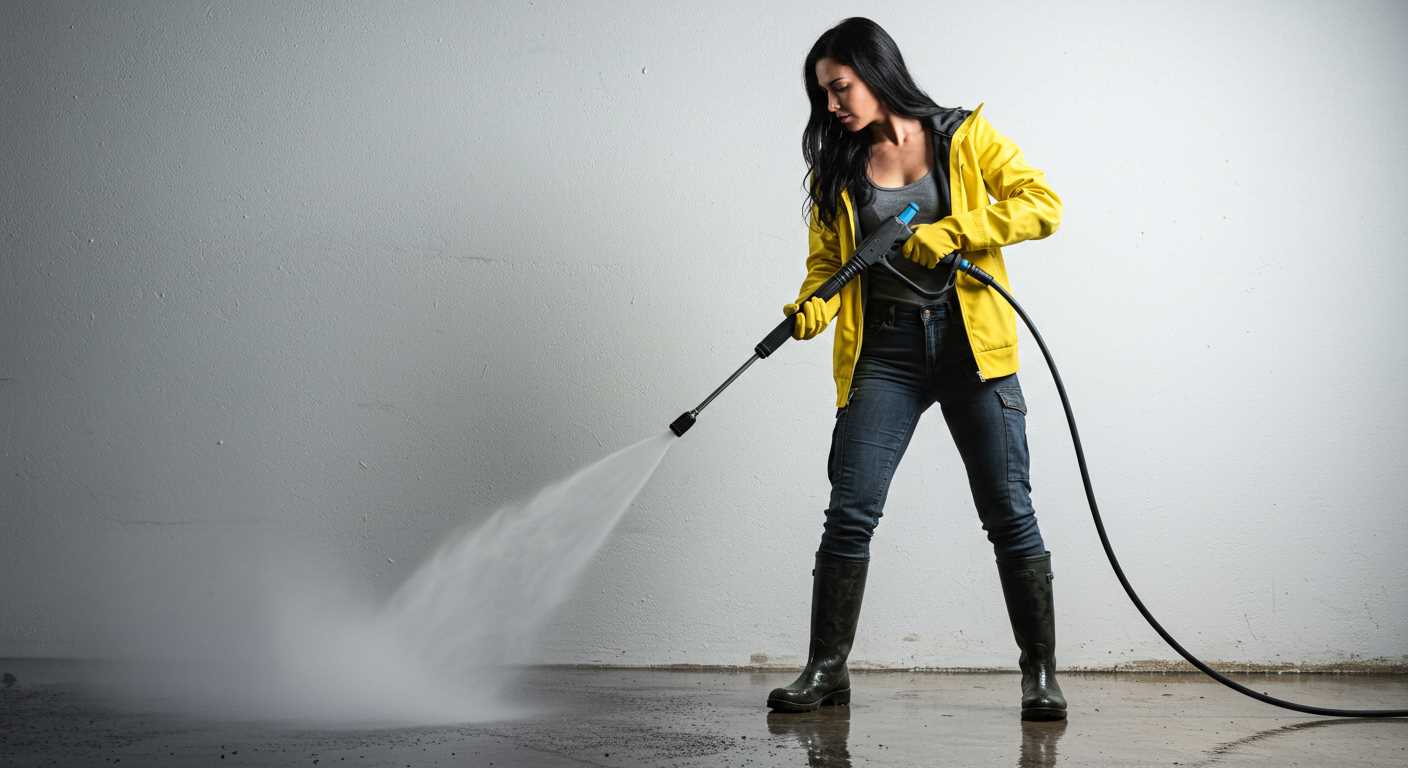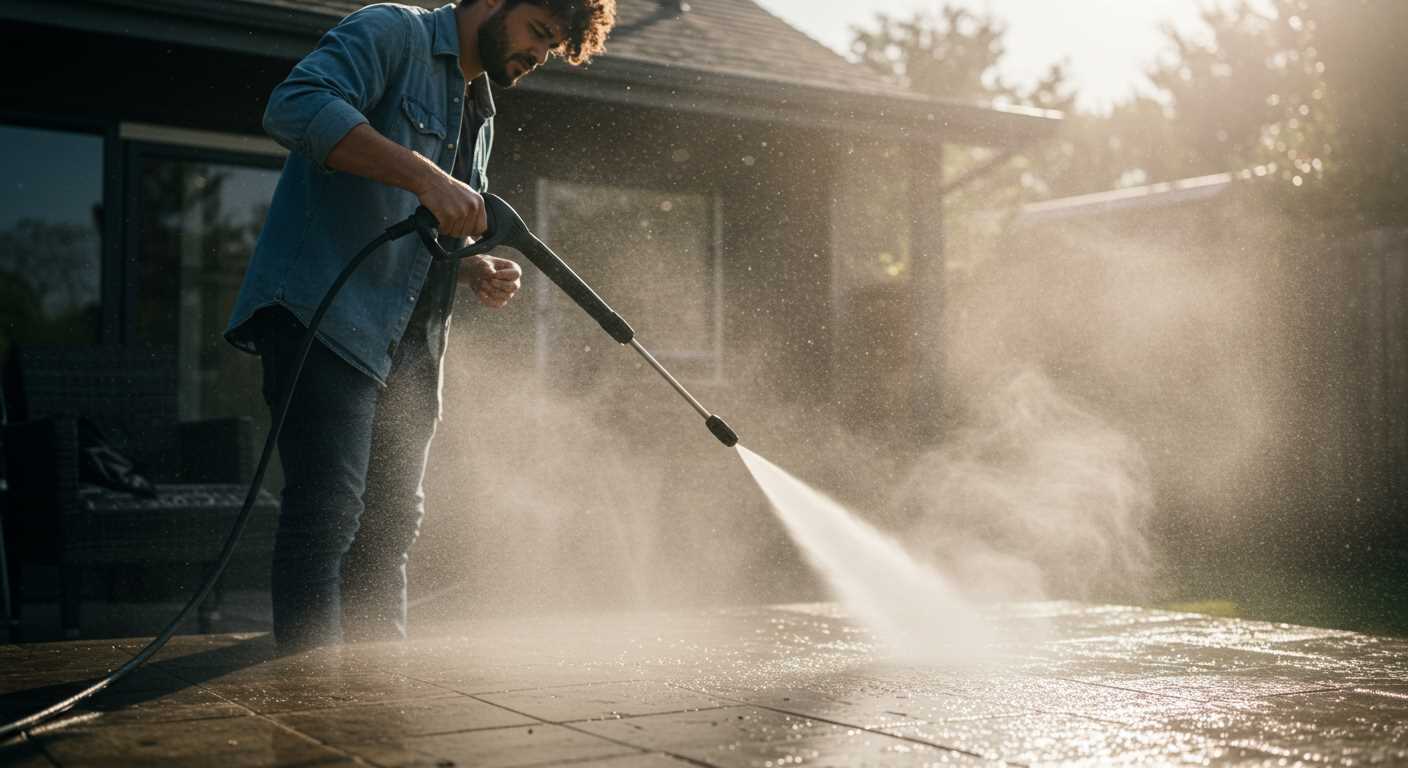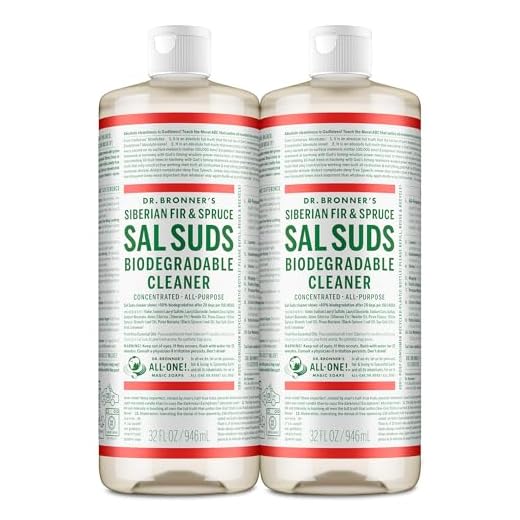



Using an unsuitable solution for your high-pressure cleaning unit can lead to significant damage, affecting both performance and longevity. Specifically formulated detergents designed for these machines ensure optimal results while protecting internal components. I’ve seen firsthand how incorrect usage can result in clogged injectors and damaged seals.
While some people might opt for all-purpose household products, these can contain harsh chemicals that compromise the equipment’s integrity. It’s advisable to select cleaners labelled as compatible with washing devices. These often include surfactants to enhance dirt removal and prevent residue build-up.
Thoroughly read the user manual of your device to identify recommended cleaning agents. Many manufacturers provide specific formulations to maximise the efficiency of their products while preserving warranties. I’ve often recommended dedicated bio-degradable options, not only for equipment safety but also for environmental considerations.
Understanding Pressure Washer Detergents

Choosing the right solution is critical for optimal performance and surface care. Only formulas specifically designed for high-pressure systems should be employed. Generic household products may lead to damage and reduced efficiency.
Types of Detergents
Several types of formulations exist for various tasks: biodegradable options for eco-conscious users, degreasers for automotive cleaning, and specialised solutions for surfaces like wood or concrete. Always check compatibility with your equipment to ensure safe usage.
Application Tips

For effective results, follow the manufacturer’s guidelines on dilution ratios and application methods. Pre-soaking may enhance dirt removal, especially on heavily soiled areas. Adjust the nozzle for appropriate spray patterns to suit different surfaces, maximising cleaning effectiveness.
Types of Cleaners Suitable for Pressure Washers
For optimal results, selecting the correct type of detergent is paramount. Various formulations are designed specifically for compatibility with high-pressure systems, enhancing efficiency while protecting equipment integrity.
Biodegradable and Eco-Friendly Options
Consider using biodegradable products. These are designed to break down quickly without harming the environment, making them ideal for outdoor cleaning tasks. Look for cleaners free from harsh chemicals, which can diminish surface quality over time.
Specialised Cleaners for Different Surfaces
Choosing a product tailored for specific surfaces maximises cleaning performance. For instance, heavy-duty degreasers effectively tackle oil stains on driveways, while mildewcides are excellent for removing mould from patios. Using the right solution not only ensures cleanliness but also preserves the material’s integrity.
Potential Risks of Using Non-Compatible Cleaners
Utilising incompatible substances in washing devices can lead to severe damage, compromising both the equipment and the surfaces being treated. Such cleaners may cause harm to the internal components, resulting in costly repairs or irreversible malfunction.
Corrosive agents present in certain household products can degrade seals, gaskets, and hoses, while foaming agents not designed for machines can lead to excessive sudsing, creating pressure build-up and possibly damaging the motor or pump. Always verify the recommended specifications from the manufacturer before adding any additive.
Using the wrong formula can also reduce cleaning efficiency, requiring more time and effort to achieve satisfactory results. Below is a table highlighting some common risks associated with non-compatible substances:
| Type of Cleaner | Potential Risk |
|---|---|
| Household Cleaner | Corrosion of internal components |
| Foaming Car Wash Soap | Excessive suds causing pressure issues |
| Acidic Cleaners | Degradation of seals and hoses |
| Concentrated Detergents | Overload of the spray system |
Moreover, environmental factors play a significant role. Some substances may not only damage the device but may also harm surrounding vegetation or surfaces. Always prioritise formulations specifically designed for compatible systems to ensure safety and performance.
In conclusion, adhering to the manufacturer’s guidelines and selecting appropriate cleansers will guarantee optimal functionality and longevity of the equipment. Clear understanding and distinction of proper materials are paramount in maintaining the integrity of both the machine and the surfaces being cleaned.
How to Identify Safe Cleaners for Your Model
Check the manufacturer’s guidelines before selecting a solution. Look for any specific recommendations or restrictions regarding types of substances suitable for your unit. This information is often found in the user manual or on the manufacturer’s website.
Verify compatibility by confirming if the formulation is designed for high-pressure equipment. Some products are specifically labelled as safe for these machines, which indicates they won’t harm internal components or seals.
Always opt for biodegradable and environmentally friendly options. These formulations minimise environmental impact and are less likely to cause damage to surroundings or surfaces being cleaned.
Conduct a patch test on a small, inconspicuous area if trying a new formula. This helps ensure the surface will not be adversely affected before broader application.
Look for certifications from recognised bodies. Products endorsed by agencies that assess their safety for various tasks will typically offer greater assurance of compatibility.
Research user reviews and feedback on the product you’re considering. Experiences shared by previous users can provide insight into performance and any concerns related to specific models.
If uncertain, contact the manufacturer’s customer service for clarification on acceptable cleaners. They can provide tailored advice based on the specifications of your equipment.
Cleaning Concrete vs. Wood: Choosing the Right Product

For effective outcomes, distinguishing between cleaning agents for concrete and wood is essential. Each surface has unique characteristics that dictate suitable formulations and concentration levels.
Concrete Cleaning Agents
Concrete is highly durable and often resistant to tough stains, making it suitable for a range of robust cleaning solutions. Here are key recommendations:
- Opt for alkaline-based solutions or specially formulated concrete cleaners to break down oil, grime, and dirt.
- Ensure products contain surfactants for enhanced adhesion and cleaning efficiency.
- Consider biodegradable options, particularly if environmental impact is a concern.
For optimal results, test cleaners on a small, inconspicuous area before broad application. This helps clarify compatibility and effectiveness without risking damage.
Wood Cleaning Agents
Wood, in contrast, is more delicate. Protecting its natural finish requires different considerations:
- Use pH-balanced, wood-specific cleaners to prevent degradation or discolouration.
- Avoid harsh chemicals, particularly bleach, which can weaken wood fibres.
- Consider products that offer mildew resistance, especially for outdoor wooden surfaces.
As with concrete, testing a small section can help determine how a substance interacts with the wood surface. Regular maintenance using appropriate solutions will prolong the life and appearance of wooden structures.
Choosing the right cleaning agent according to the material not only yields better results but conserves the surfaces, ensuring longevity and maintaining aesthetic appeal.
DIY Cleaners: Recipes for Pressure Washer Use
Homemade solutions can be quite effective and economical for cleansing tasks. Below are specific formulas tailored for various cleaning needs.
All-Purpose Cleaner
This mixture tackles most surfaces.
- 1 cup of white vinegar
- 1 cup of baking soda
- 1-gallon water
Combine ingredients in a large container. Stir until fully dissolved. Pour into the detergent tank, and you are ready to go.
Concrete Cleaner
Ideal for removing tough stains from concrete.
- 1 cup of dish soap
- 1 cup of bleach
- 2-gallon water
Mix thoroughly and apply with your equipment. Ensure proper ventilation and wear gloves while handling bleach.
Wood Cleaner
For soft surfaces, a gentle approach is key.
- 1 cup of vinegar
- 1 cup of vegetable oil
- 2-gallon warm water
Blend the ingredients, apply with care, and avoid high-pressure settings to prevent damage.
Patio and Deck Cleaner
Specifically designed for stone and wooden patios.
- 1 cup of oxygen bleach (e.g., sodium percarbonate)
- 1-gallon water
Dissolve the oxygen bleach in water thoroughly and use it to restore the surface’s appearance.
Car Wash Solution
This mixture ensures a streak-free shine.
- 1 cup of car wash soap
- 1-gallon water
Mix well and apply, then rinse thoroughly to remove soap residue.
Always test any homemade mixture on a small, inconspicuous area before full application. This ensures compatibility with your tools and prevents potential damage.
Manufacturer Recommendations and Guidelines
Always refer to the user manual supplied with your equipment for specific guidelines regarding cleaning agents. Each manufacturer provides a detailed list of recommended formulations tailored for their devices. For instance, many brands specify pH-neutral detergents to prevent damage to internal components.
Look for symbols or labels on your machine indicating compatibility with certain cleaning solutions. Certain models are designed for specific tasks and may require specialised formulas to maintain warranty validity. Using substances outside of these recommendations can lead to voiding warranties.
Consulting manufacturer websites for advice on suitable products is also recommended. Leading brands often have dedicated sections addressing appropriate chemicals, as well as suggestions for varying applications, from light cleaning to heavy-duty tasks. This ensures optimal performance and longevity of your equipment.
Staying informed about recalls or safety notices related to cleaning products that interact with specific models is crucial. Regular updates from manufacturers can help avoid potential hazards or inefficiencies. It’s prudent to keep abreast of such communications to ensure safe and effective cleaning experiences.
In summary, following manufacturer guidelines on detergent usage is key. Adhering to these recommendations ensures operational efficiency, protects your equipment, and upholds product warranties.
Steps to Safely Apply Cleaners in a Pressure Washer
Always wear protective gear including gloves, goggles, and a mask before handling cleaning agents. This helps prevent skin irritation and inhalation of harmful fumes.
Read the label on the product container thoroughly. Manufacturers provide critical information about dilution ratios and compatibility with equipment. Adhere strictly to these guidelines to avoid damage.
Pre-dilute concentrated products in a separate container if required. Avoid mixing different chemicals, as this can result in hazardous reactions. A dedicated mixing container keeps things organised and safe.
Employ a low-pressure nozzle to apply the solution. This technique ensures even coverage and prevents damage to surfaces. Adjust the pressure according to the manufacturer’s instructions for optimal results.
Allow the solution to dwell on the surface for the recommended time. This is crucial for effective cleaning as it allows the agent to break down dirt and grime. Do not allow it to dry out, as this could lead to streaking or residue.
Immediately rinse the area after the dwell time with a high-pressure nozzle. This ensures all residues are thoroughly removed and prevents any potential damage from lingering chemical exposure.
After cleaning, thoroughly flush the system with water to prevent clogs. Run clean water through the machine for several minutes, ensuring all traces of the cleaning solution are eliminated.
Store any unused cleaning agents in a cool, dry place away from children and pets. Proper storage prolongs the life of the chemicals and maintains safety standards.
Review the equipment’s maintenance guidelines regularly. Regular checks ensure all components are in optimal condition and compatible with selected cleaning agents.
FAQ:
Can I use any type of cleaner in my pressure washer?
No, you cannot use just any cleaner in a pressure washer. Most pressure washers are designed to work with specific types of cleaning solutions. It’s crucial to use cleaners that are specially formulated for pressure washers to avoid damaging the machine or voiding the warranty. Always check the manufacturer’s guidelines for compatible cleaning products.
What happens if I use a standard household cleaner in a pressure washer?
Using a standard household cleaner can lead to several issues. These cleaners may not be compatible with the pressure washer’s internal components, which can cause clogs or damage. Additionally, they might not provide the necessary cleaning power for tough stains, leading to ineffective cleaning. It’s better to use a cleaner designed for high-pressure systems to ensure safe and effective cleaning.
Are there specific cleaners recommended for different surfaces?
Yes, there are various cleaners tailored for different surfaces such as wood, concrete, or vehicles. For instance, a degreaser may be ideal for driveways, while a gentle soap may be better for painted surfaces. It’s important to select the right cleaner for the specific job to achieve the best results while safeguarding the surfaces you are cleaning. Always read the labels to find the right product for your needs.
Can I mix cleaners in my pressure washer?
Mixing cleaners is generally not advisable as it can create harmful chemical reactions or reduce the overall cleaning effectiveness. Each cleaner contains its own set of ingredients, and combining them may lead to undesired results or damage to your pressure washer. It’s safest to use one type of cleaner at a time or consult the product instructions for guidance on compatibility.
Is it safe to use bleach in a pressure washer?
Using bleach in a pressure washer can be risky. While some products are formulated to be safe with bleach, many pressure washers are not designed to handle harsh chemicals. Bleach can corrode metal parts and damage seals. If you choose to use bleach, ensure it is heavily diluted and follow the manufacturer’s recommendations to prevent any harm to your equipment.








